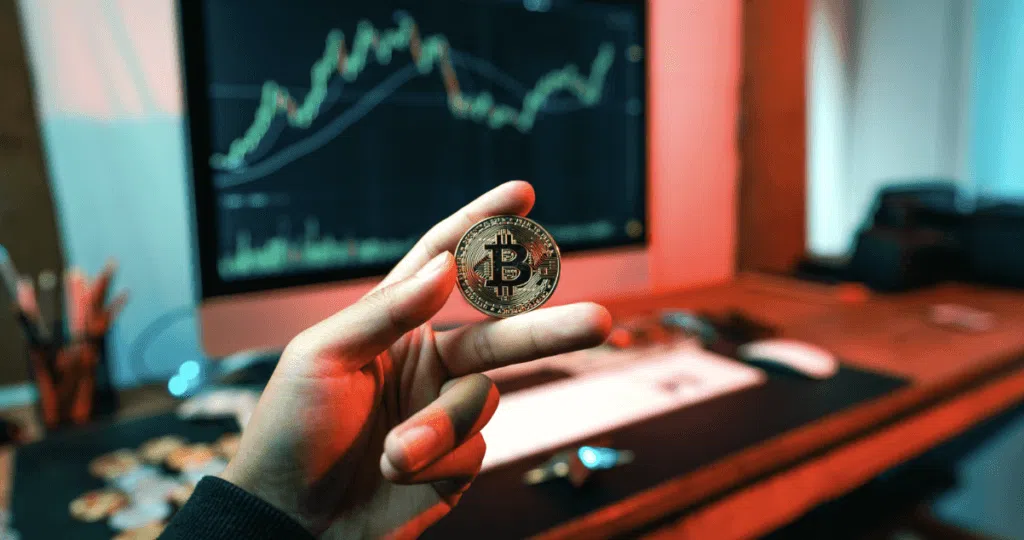TLDR
KYC (Know Your Customer) is a series of procedures that must be followed in cryptocurrency exchanges to comply with laws made for Anti-Money Laundering (AML). It includes assessing a customer’s risks, financial movement, and identity information.
Buying cryptocurrency without going through KYC procedures is not impossible, but it makes the transaction complicated and insecure.
KYC is essential for ensuring that there are no monetary or regulatory risks involved in the crypto exchanges and that cryptocurrency compliances are met.
What is KYC in cryptocurrency?
Cryptocurrencies are virtual assets that are changing the world tremendously. Like every financial transaction, crypto exchanges have some legal requirements, such as Know Your Customer (KYC) guidelines.
Identifying and knowing the customers is the foremost step in the due diligence for all financial intermediaries regarding money laundering risks. Since cryptocurrencies are exchanged on their respective blockchains anonymously, there are higher chances of financial crimes. Therefore, all virtual financial institutions must set strict KYC regulations before attracting new customers.
This helps the Financial Institutions (FIs) to improve customer trust and security and identify customer risk better. Still not sure about KYC measures in cryptocurrency assets?
Don’t worry. This article explains the KYC process, its benefits, risks, and more.

How Does KYC in Cryptocurrency Work?
It is legal compliance for crypto exchanges to identify customers before they make a transaction. KYC measures work slightly differently for each cryptocurrency exchange. However, the basic process is more or less the same.
In the Know Your Customer KYC process, the VASP (Virtual Asset Service Provider) determines specific steps FIs must follow to rule out cash laundering or criminal activity from a client’s account.
Typically, customers are requested to provide information like their social security number, driver’s license, or any other government-issued ID and other financial history documents as a source of funds for the identity verification process.
It provides the VASP with an efficient way to keep a secure record of customers’ personal and financial information to avoid fraud. During the verification process for crypto KYC, customers can make limited transactions via crypto exchanges – crypto to crypto, but not fiat to crypto.
What is Needed for KYC in Crypto?
The KYC is categorized into three portions which are;
- Customer identification
- Due diligence
- Ongoing monitoring
Customer Identification
In this part of the KYC procedure, the crypto exchange asks the customers to provide valid personal information to verify customer data. The information includes your full name, address, date of birth, identity card photo, and SSN.
Due Diligence
During this phase, the VASP ensures you have no criminal record on your profile. Compliance with anti-money laundering and other financial regulations is also guaranteed in the due diligence part.
Monitoring
A Cryptocurrency Transaction Monitoring System monitors the transactions after due diligence. This is done to track any unusual or criminal activities during otherwise illicit cryptocurrency transactions.
Why is KYC Mandatory for Most Crypto Exchanges?
With the rising trend and popularity of cryptocurrencies worldwide, the governing authorities also consider it essential to include proper regulations and evolving international guidelines for virtual transactions.
Crypto exchanges are considered Money Service Businesses (MBSs), another reason they must follow the KYC process assigned by the government’s financial system.
Another reason KYC is mandatory in crypto is that a certain level of skepticism occurs during financial exchanges. The KYC process is compulsory to eliminate that and make transactions more secure via a robust identity verification front.
Can You Buy Crypto Without KYC?
Yes, buying crypto without any KYC standards is possible. However, it can be a lot more complicated for the customers.
Here is our guide to top crypto exchanges without KYC.
Customers who prefer to keep their information to themselves can also transact crypto via Bitcoin ATMs and decentralized exchanges.
Peer-to-peer crypto exchange platforms like Local Bitcoin(Closed) and Paxfulness need no KYC for transactions. Despite all the non-KYC exchange options, most legitimate crypto buyers choose the KYC process to comply with their countries’ tax authorities and global regulators.

List of Non-KYC Exchanges


More details
BitForex provides an extensive selection of cryptocurrencies with high trading volumes at low fees. It offers a user-friendly trading terminal, a mobile application for trading, and the option to trade through MT5. The platform caters to beginners with a demo account and experienced traders with leverage trading and tradable perpetual contracts.
-
Low fees and high liquidity options for users.
-
User-friendly mobile app.
-
300 trading pairs and diverse digital assets.
-
Offers leverage up to 100x.
-
High-security, including 2FA and cold wallets.
-
Slow customer support than other platforms.
-
Lacks transparency.
-
Some outdated features.


More details
Kucoin stands out among other crypto exchanges due to its impressive span of 1100 markets and 600 digital currencies. This, coupled with a user-friendly interface and secure investment environment, has made Kucoin an increasingly popular choice. However, US customers can not use the trading platform.
-
Ability to earn interest on crypto.
-
Low fees.
-
Good customer service.
-
Volume discounts on fees.
-
Features like margin and futures trading.
-
Not licensed in the U.S.
-
Lack of investment programs.
-
Low trading volume.
Why Do People Avoid KYC in Crypto?
This question has no particular answer because it varies from person to person. In most cases, people avoid KYC in cryptocurrency because of privacy concerns.
They hesitate to share their personal and financial details on virtual platforms, particularly with the rising cyber crimes and money launderers.
This holds particularly true in certain countries where the legality of transactions on crypto exchanges remains unclear. Some people want to stay anonymous when they make transactions through crypto companies.
Anonymity can be due to several reasons, including but not limited to personal reasons, identity theft, fraudulent intent, and lack of trust.
Benefits of Crypto KYC
Regulatory compliance with KYC regulations can greatly benefit the widespread cryptocurrency trading marketplace.
Here are some of the benefits of crypto KYC:
Lower legal risk
Every business has certain legal risks and disputes that must be catered to for smooth operations. KYC processes enable cryptocurrency exchanges to be risk-free to a great extent. KYC legislation helps stakeholders manage legal disputes and stay current with the latest conversion rates and legal compliances.
Better customer trust
Many people hesitate to use cryptocurrency exchanges because of the financial uncertainties that come with them, like FTX. However, with proactive preventive measures like KYC, a customer’s identity is secure and can better trust crypto assets and platforms.
Less criminal activities
Cryptocurrency firms have a lot of mistrust due to anonymous people and their criminal intents. People making anonymous transactions scare off potential customers. Criminal activities are reduced significantly using the KYC process for identifying customers and due diligence.
Reduced money laundering
One of the greatest benefits of KYC is that the procedures significantly reduce fraudulent activity in the crypto marketplace. KYC in a crypto company ensures global regulation of all the financial transactions made virtually and reduces that risk through regulatory penalties.
Stable crypto market
Cryptocurrency transactions are considered less predictable than physical transactions because of the uncertain crypto marketplace. With strict laws and regulations implemented, people can start investing and doing business more virtually, stabilizing the crypto market.

Do Crypto Wallets Need KYC Compliance?
Not particularly, the KYC process for crypto wallets depends on the type and regulations of each wallet provider. A cryptocurrency wallet is usually of two types: VASP and Self-hosted.
In the VASP crypto wallet, new users must adhere to KYC guidelines when making transactions. However, customers do not need to follow KYC regulations in unregulated or self-hosted wallets like Metamask or TrustWallet.
Conclusion
It is safe to say that the KYC process is one of the many ways to keep the crypto industry more secure, stable, and professional for customers. Knowing customers prevents people from money laundering and helps authorities to track down those who attempt to do so. That’s the reason KYC is an integral part of the cryptocurrency market.
What does KYC mean in the crypto context? In the first stage of anti-money laundering (AML) due diligence, financial institutions (FIs) perform Know Your Customer (KYC) procedures. These procedures help identify and verify a new customer's identity when they join the institution.
Illicit organizations may attempt to access crypto exchanges for money laundering purposes; other users could try to evade taxes; and underage users might seek to trade cryptocurrencies. Due to these reasons and others, some users may employ questionable tactics to bypass KYC checks.
Customers must now undergo a KYC process before opening an account on a cryptocurrency exchange. This crypto KYC process requires the exchange to verify your identity and ensure that you are the person you claim to be.
After opening an account on a crypto exchange, you will need to provide your PAN card and address proof, such as an Aadhar card, passport, driving license, or utility bill, to complete your KYC verification. Occasionally, some crypto exchange platforms may also request a check or bank account statement.










